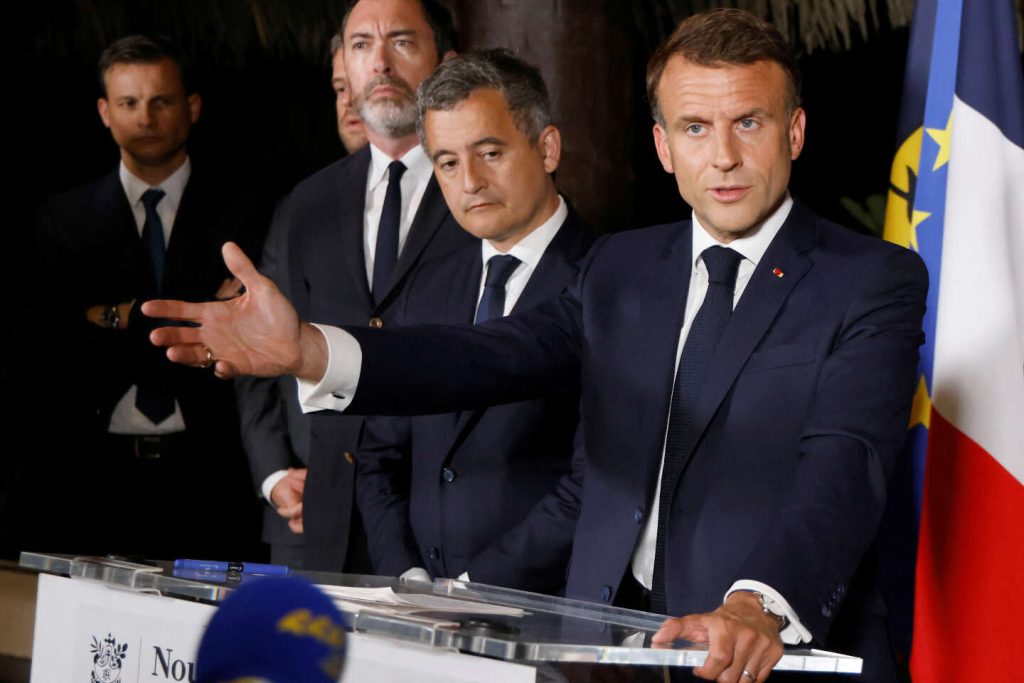Emmanuel Macron and the Minister of the Interior and Overseas Territories, Gérald Darmanin, visited the residence of the high commissioner of New Caledonia in Nouméa on May 22, 2024. Macron traveled nearly 35,000 kilometers round trip on the presidential Airbus for a surprise visit to New Caledonia. The visit was brief and the outcome was uncertain. Macron arrived in a New Caledonia rocked by insurgency and left without addressing the main demand of the Kanak independence activists: the withdrawal of a constitutional law proposal related to the electoral system for the upcoming territorial elections.
The main spark that reignited the revolt in New Caledonia was the proposed constitutional law on expanding the electoral body for the next territorial election. Macron chose not to use the word “withdrawal” during his visit, but instead stated that he would not push the reform through forcefully and would allow for a few weeks of dialogue to seek an overall agreement between the independence movement and loyalists. This agreement, awaited for two years, will redefine the status of New Caledonia and include provisions on New Caledonian citizenship and a process of self-determination that may lead to a referendum according to Macron.
Since May 13, Nouméa and its surroundings have been devastated by violent riots targeting industrial and commercial sites. These actions have disrupted the economy and daily life in the region. Barricades set up by independence activists and residents seeking protection from looting have led to a tense atmosphere, with a curfew in place for safety. Macron described the situation as an unprecedented insurrection with levels of violence that caught everyone by surprise, emphasizing the need for a political response to the unrest.
During his visit, Macron met with police officers in Nouméa and acknowledged the unique and unexpected nature of the uprising in New Caledonia. He refrained from categorizing the events as a Kanak insurrection, stating that the reality will determine how the situation unfolds. Macron emphasized the importance of providing a political response to the unrest, recognizing the complex nature of the movement that includes political motivations as well as opportunistic individuals engaging in violent acts.
The situation in New Caledonia is complex, with various groups and interests at play in the ongoing unrest. Macron’s visit and statements reflect a commitment to finding a peaceful resolution through dialogue and political consensus. The challenge ahead lies in bridging the divide between the independence movement and loyalists, and addressing the underlying issues that have led to the current state of turmoil in New Caledonia. The road to lasting peace and stability in the region will require a collaborative and inclusive approach that respects the rights and aspirations of all parties involved.


